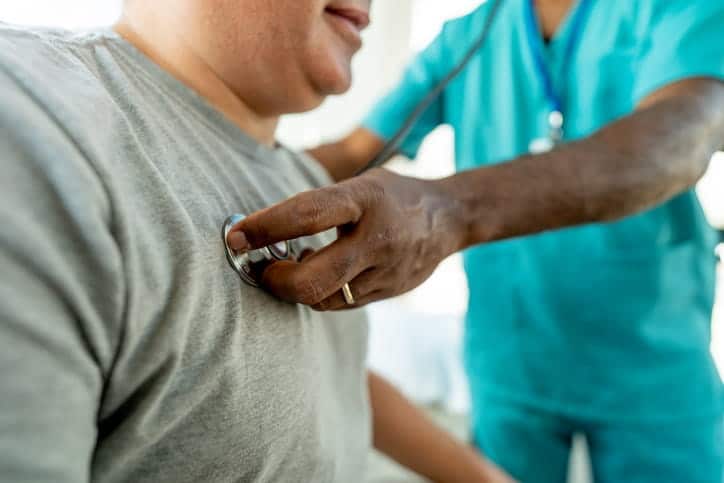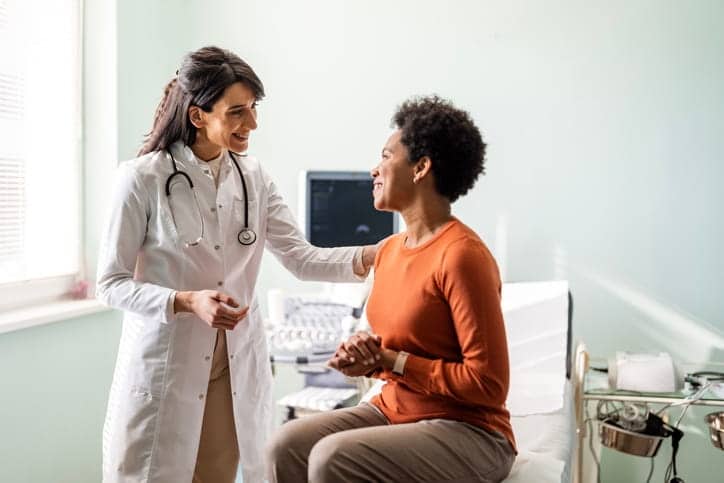
Starting a new year right means planning, establishing, and sticking to your New Year health plan. Let’s take a closer look at screenings you should consider as you make your plan.
Live your healthiest life possible when you turn to the team at Haven Health.
What are the most important health checkups I need?
Knowing what checkups you should have at your age is the best way to stay on top of your health. If health issues do arise, regular checkups will ensure you catch them early to prevent worsening conditions.
Age 20 to mid-30s: Establishing the foundation for good health
During your younger years, it is important to stay on top of your overall general health and well-being by scheduling annual checkups for your health in your 30s, including:
- General physical exams
- Blood pressure measurements and blood tests
- Cholesterol checks
- Annual eye exams and bi-annual dental exams
Age 33 to mid-50s: Vigilance and prevention
At this age, you’ll want to start getting more vigilant about your health. Some checkups you may need to consider include:
- Diabetes screenings
- Cancer screening, especially if you have a family history
- Bone density testing, especially for women
- Thyroid function tests
- Starting as early as age 44, women should be discussing mammogram screenings for early breast cancer detection
Age 56 and beyond: Managing your health and wellness
As we get older, symptoms of larger health concerns may start presenting themselves. At this stage, older adults and seniors should be aware of more specialized screenings recommended for their age range, following the direction of a healthcare provider. Older adults and seniors can be at higher risk for certain health conditions, certain cancers, dementia, Alzheimer’s, and other physical and neurological health issues and should have the following screening on their radar:
- Heart health checks, including regular EKGs and stress tests for heart health
- Colonoscopies — early detection can be lifesaving
- Osteoarthritis and joint health checks, especially in women with bone loss
Seniors who have a health care plan but want comprehensive health screening schedules, or one-on-one care may find the services of a skilled nursing facility beneficial. These facilities offer personalized care that allows you to manage regular preventative screenings.
While this is just a generalization of the different tests and checkups individuals at certain ages should consider, it’s important to follow the direction of your healthcare professional.
All individuals are different and their health needs may be different as well. If you are aware of specific health conditions you have, it’s important to stay on top of regular checkups to ensure the healthiest life possible.
What health tests should you get every year?
No matter your age, you should have regular health checkups every year. These important health checkups ensure you can catch any issues early and avoid more serious consequences of untreated health issues:
- Blood tests: Getting your blood regularly tested is one of the best ways to detect health issues, such as anemia, infection, and problems with organ function
- Vaccinations: There are some vaccines you will need to have re-administered throughout adulthood. This can include flu shots, tetanus shots, and other immunizations your healthcare provider might deem necessary
- Skin cancer checks: Analyze your skin every couple of months and keep an eye out for abnormal growths, discoloration, skin tags, rashes, or moles. These can all be indications of skin issues like infections, allergies, or skin cancer.
- Eye exams: You should schedule annual eye exams to ensure your optic health is where it needs to be
- Dental exams: Biannual dental exams and cleanings are the best way to keep your oral health in shape. Catching oral health issues like cavities and gum issues will keep you from experiencing wasted time, money, and unnecessary pain.
What screenings does the CDC recommend for adults?
The Centers for Disease Control and Prevention (CDC) can help you further identify recommended screenings you need to consider at your specific age or if you have specific health issues in your family.
The CDC recommends that adults should begin regular cancer screenings — including cervical cancer, prostate cancer, breast cancer, and lung cancer — as early as age 25.
Depending on your age, current health, and lifestyle, your doctor may require you to begin specific annual screenings that can monitor and catch diseases and other health issues you’re more at risk for.
Other recommended screenings for adults include:
- HIV and STI screenings
- Blood pressure screenings
- Diabetes testing
It’s also essential to keep up with immunizations, especially if you work in a high-risk industry or are traveling.
What health checkups should not be skipped?
While all health screenings are important, some should never be skipped. However, it does depend on the person, their age, lifestyle, and medical history. For example, if you have a history of breast cancer in your family, you may want to begin early detention via mammogram screenings as early as age 30. This will allow you to make sure there are no current risks and that if a health issue does arise, it can be addressed quickly.
Related: The Importance of Regular Health Checkups for Seniors
Better health with Haven Health

For some people, their health plan might be as simple as staying on top of important checkups. For others, it might mean seeking the services of a skilled nursing facility. It’s important to speak with your healthcare provider to determine how different factors like age, lifestyle, and medical history impact your current health and any screenings you may need.
Contact Haven Health to learn more about how our facility can serve you and your family.
Sources:
Are You Up to Date on Your Preventive Care. (2023).
Breast Cancer: Screening. (2016).
How Can I Tell If I Have Skin Cancer. (2023).
What Is Breast Cancer Screening? (2023).